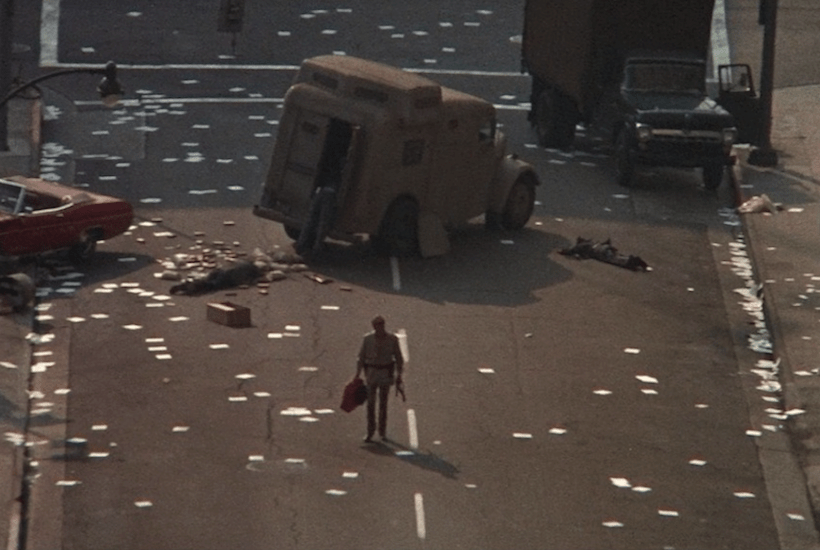In cybersecurity, it’s called the compelling event: when a serious security incident occurs that causes financial loss or serious brand damage. Usually the organisation has been aware of the risk but there’s insufficient budget to cover the expenditure to mitigate the risk. On a rare occasion, the incident comes as a complete surprise. Enter the CEO whose reputation is in jeopardy. Armed with wads of cash press-ganged from other project budgets, the CEO takes over damage control. Frugality and priorities go out the door and budgetary scrimping is abandoned.
This summer’s bushfires are a case in point. It’s as though history has stopped and lessons from the past are erased. The institutions and experts were painfully aware of the huge risk posed by accumulated fuel loads but did nothing. When the firebugs’ lighters hit the twigs or lightning struck, administrators failed to acknowledge their responsibility. Going along with the media’s “climate change emergency” was an easy way to abrogate blame.
The media participated in the big lie making it easier to blame politicians and climate-sceptics rather than report factually and objectively. Never let a crisis go to waste.
Attempts to reduce bushfire risks were vigorously opposed by misguided environmentalists who complained about smoke discomfort. Inertia ruled the day and when the inevitable bushfires occurred, the activists were again silent, refusing to admit their own complicity in the debacle, let alone accept any responsibility.
The virulent global flu epidemic is our current compelling event. Unlike the Spanish Flu, the Covid-19 strain isn’t decimating the population, just culling the infirmed and elderly. There’s also a degree of xenophobia that’s escorting the outbreak, caused primarily by China’s global muscle-flexing and using its economic might as leverage.
The compelling component is how the event has revealed our complete dependence on Chinese export revenues and our susceptibility to blockages in Chinese incomes and cash-flow. Universities who selfishly looked the other way at declining standards are deservedly hurting the most. To compound the situation, many are offering incentives to induce unwise travel. The biggest threat we must face however comes from Australia’s dependence on imported components that span the entire supply chain.
As the irrational lunacy of fear-induced stock-piling and panic buying has emerged across the globe, so too has the underlying issue of how Western nations have succumbed to near-complete reliance on China for almost everything. The lure of cheap consumer products has been irresistible, but the bitter harvest we now reap is economy crippling shortages.
According to reports in the Wall Street Journal, 98 per cent of our pharmaceutical supplies depend on chemical ingredients sourced exclusively from China. If China’s ruling elite used their unbridled power to restrain drug supplies, what would the impact be on the masses? If fictitious loo paper shortages create panic, what would a deliberate state-sponsored supply embargo of insulin or other critical elixirs create? Would rioting break out if life-extending medicines were in limited supply? What if painkillers, coronary or cancer medicines became unavailable? How quickly could nations like Australia rebuild our capacity to become self-sustaining in the manufacture of drugs? Would friends like the USA prioritise their needs and share supplies evenly around the globe? I’m dubious.
The other alarming facet revealed by the absurd panic buying is how quickly our modern society breaks down in the face of even a modest threat. If you were to cogitate on the impact of chronic baseload electricity shortages, how soon would the rule-of-law evaporate necessitating martial law and curfews?
Our entire food supply chain depends on refrigeration and cold storage: everything. Our ordered society is based on fully stocked cool-rooms and fridges to ensure reliable food supply.
We need electricity to pump petrol, operate cash-registers and power mainframes to manage inventory. How soon would looting set in if we lost electricity for 12, 24 or 36 hours? Remember the New York blackout of 1977?
The latest climate thought-bubble of net-zero emissions by 2050 fails to explain how we replace our coal-fuelled electricity supply with an affordable, reliable alternative. Suggesting we migrate to batteries and windmills just doesn’t stand up to even a cursory examination of the costs incurred to achieve food security for Australia’s 26 million residents. Just like the politicians, we need to ask ourselves tough questions about how we propose to replace our always-on electricity supply? What is the cost of doing nothing? A complete disintegration of societal norms is conceivable if we don’t urgently solve our baseload energy dilemma.
That could be Australia’s compelling energy event: an unconscionable breakdown in society.
Mike Ryan is a curmudgeonly technical copywriter who lives in the glorious Hunter Valley.
Illustration: Walter Seltzer Productions/Warner Brothers.
Got something to add? Join the discussion and comment below.
Got something to add? Join the discussion and comment below.
Get 10 issues for just $10
Subscribe to The Spectator Australia today for the next 10 magazine issues, plus full online access, for just $10.


























Comments
Don't miss out
Join the conversation with other Spectator Australia readers. Subscribe to leave a comment.
SUBSCRIBEAlready a subscriber? Log in